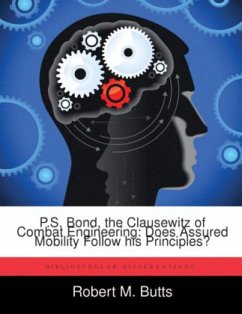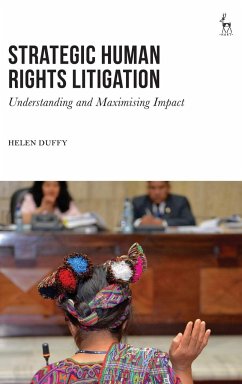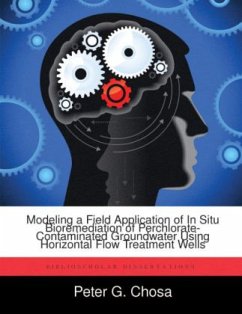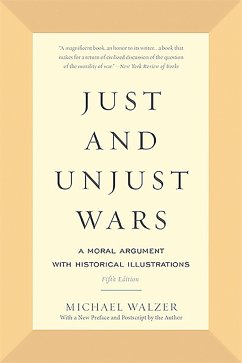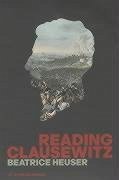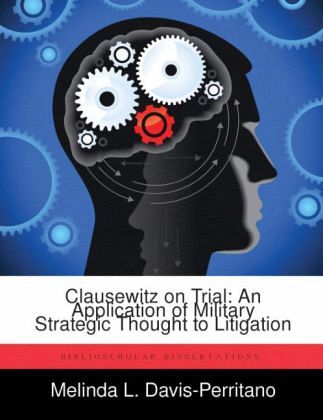
Clausewitz on Trial: An Application of Military Strategic Thought to Litigation
Versandkostenfrei!
Versandfertig in über 4 Wochen
53,99 €
inkl. MwSt.

PAYBACK Punkte
27 °P sammeln!
Major General Carl von Clausewitz's contributions to the world were not displayed through brilliant military maneuvers on the battlefield, but rather through his thoughts inscribed on paper. Clausewitz published numerous writings based on his lifelong study of history and war exploring the relationship between war and politics and the interplay of forces both internal and external to warfare. War and litigation share a similar relationship in conflict resolution--perhaps the type of relationship Clausewitz would have sought to explore and think about had he lived in the twentieth century age o...
Major General Carl von Clausewitz's contributions to the world were not displayed through brilliant military maneuvers on the battlefield, but rather through his thoughts inscribed on paper. Clausewitz published numerous writings based on his lifelong study of history and war exploring the relationship between war and politics and the interplay of forces both internal and external to warfare. War and litigation share a similar relationship in conflict resolution--perhaps the type of relationship Clausewitz would have sought to explore and think about had he lived in the twentieth century age of litigation. Just as Clausewitz helps the Airman, Soldier, Sailor, Marine, and Guardsman think about war, Clausewitz also helps the trial counsel think about the practice of litigation--both inside and outside of the courtroom. The study of military strategy, theory and thought provides the trial counsel an intellectual foundation from which to pursue their own ideas about litigation. The trial counsel should explore and study warfare as a means of developing an analytical framework for their advocacy. Trial counsel should establish a particular way of thinking about litigation that traverses the entire litigation process from pretrial to post trial. Every tactical move a counsel makes, whether it is in discovery, charging, or in motion practice, should have a strategic link to its client's objectives.



